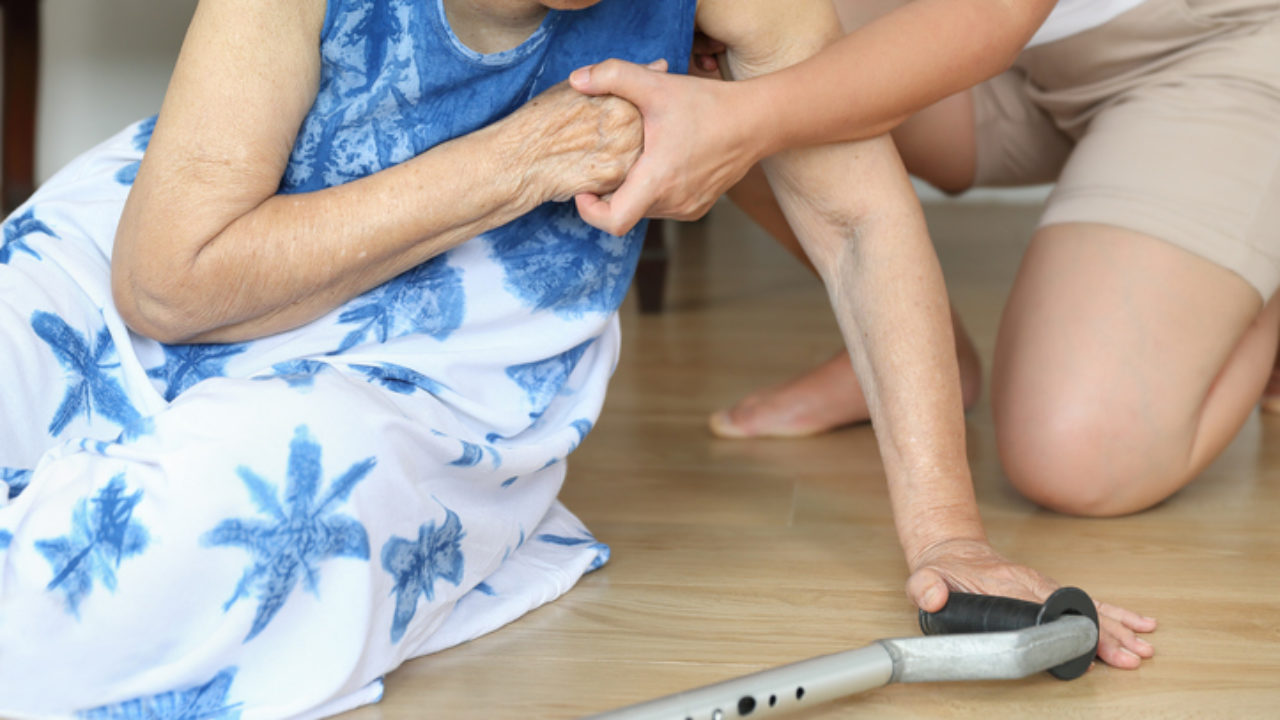Why Do Elderly People Fall in a Nursing Home?
A nursing home resident may not fall just because of neglect or poor oversight by the staff. Here are some other factors that can result in a fall:
- Age – Older people fall more often than young people
- Poor vision – Your eyesight declines with age and what you don’t see can hurt you
- Confusion – People who are confused are less able to avoid dangers
- Medications – Many patients and residents fall because they are taking a medication that makes them sleepy or dizzy. Other patients may fall when they stand up because their medications lower blood pressure. Anti-anxiety medications, anti-depressants, and sedatives, for example, could increase a person’s risk of falling. Patients and staff need to be aware of these risks and account for them.
- Poor balance, coordination, gait, and range of motion (ROM) – Many older patients, as well as those who have had a stroke, have poor balance and may have poor gait and coordination. They may also fall when their muscles are not able to flex and extend in a normal way. Lack of physical exercise or activity may make this problem worse
- Unsafe areas of the nursing home – Wet floors, poor lighting, incorrect bed height, poorly maintained wheelchairs, clutter, and lack of working nurse call bells may increase a person’s risk of falling
- No answers to calls for help – This can be a problem if the nursing home doesn’t have enough staff to adequately care for residents, if there is a lack of training, if there is poor communication, or if there is neglect
- Broken equipment – A broken cane, walker, wheelchair, or wheelchair brake can result in a person’s fall
- Past falls or a fear of falling – Patients and residents who have fallen in the past are at a greater risk for another fall
A fall is not just an embarrassing incident. It can result in serious, permanent, or fatal injuries. Hospitals and nursing homes should assess the fall risks for each resident on an ongoing basis, using tools such as the Morse Fall Scale.
Some of the common injuries suffered as the result of a fall include:
- Hip fractures – One out of every five hip-fracture patients dies within one year of his or her injuries. Many others are left weakened and suffer permanent consequences.
- Other fractures and broken bones – Older adults often suffer broken bones, including hip fractures, spine and back breaks, and injuries to the hands, legs, pelvis, and ankles, as they attempt to stop themselves from falling.
- Serious head and brain injuries – Falls are the most common cause of traumatic brain injury in older people. A brain injury may cause limited mobility, complete lack of independence, and health problems that increase the risk of early death.
- Internal bleeding – While a fall may cause superficial bumps and scrapes, it can also cause severe lacerations both inside and outside the body. If your loved one broke a rib, he or she could suffer internal hemorrhaging as a result.
- Death – Older patients are less likely to have the strong body systems necessary to heal from an injury. If an elderly resident suffers a broken bone that becomes infected, his or her weakened immune system may not have the strength to recover.
Now is the time to think about whether a nursing home abuse lawsuit is in your family’s best interest. It won’t undo what’s happened, but it could:
- Help pay for any medical expenses your loved one incurred as a result of the fall
- Help pay for your loved one’s funeral expenses if they died from the fall
- Hold the nursing home accountable for what happened
- Help prevent future falls and fatalities.
- Help you and the rest of your family during this incredibly difficult time
If you have a loved one who suffered an injury or died as a result of a fall, it is time to act! Contact me today for a free consultation.

